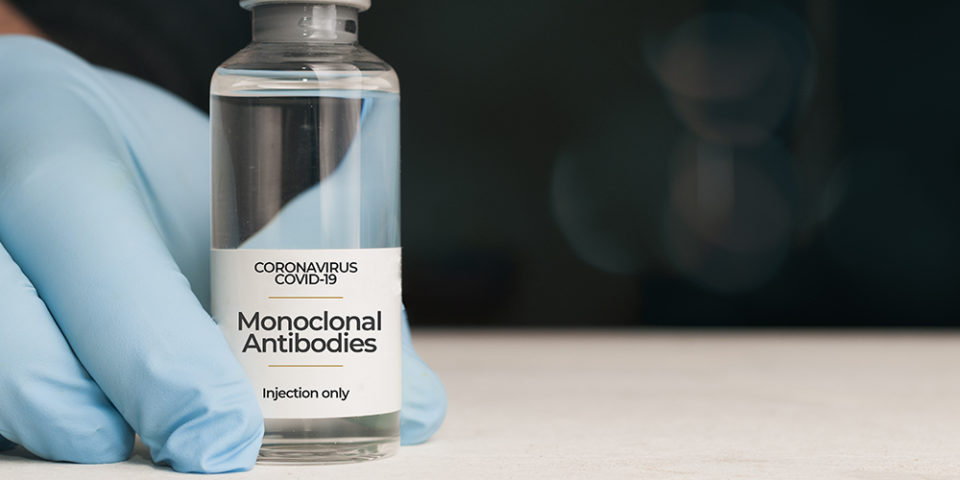What to know about COVID-19 treatments
Although most people are able to recover from COVID-19 with at-home treatment, many others need advanced care. Since the start of the pandemic, several therapies have been developed as we’ve learned more about the virus. Infectious disease physician Edwin Hayes, MD, shared some details about the treatments that are currently being used.
Monoclonal antibodies
Monoclonal antibody treatments, Bamlanivimab and Regeneron’s casirivimab/imdevimab cocktail, are being given to high-risk COVID-19 patients to keep them out of the hospital. Both drugs were authorized for emergency use by the Food and Drug Administration (FDA). The drugs are administered through an IV to patients in an outpatient setting.
“This experimental treatment may offer us an opportunity to potentially help prevent COVID-19 progression in high-risk patients,” said Dr. Hayes.
The treatment can be used in patients who are 12 and older and weigh at least 80 pounds. It is designed for patients who are at high risk for severe disease but are not currently hospitalized and do not require oxygen therapy due to COVID-19. The treatment is time-sensitive and must be given as soon as possible after a positive result and within 10 days of developing symptoms. Patients need a physician’s referral to receive the antibody treatment.
A clinical trial studying Bamlanivimab in adult patients with mild to moderate COVID-19 found the treatment was shown to decrease the need for hospitalizations and emergency department visits. It was also shown to decrease the amount of virus measured in the patient.
“The most common reported side effects in clinical studies have been nausea, diarrhea, dizziness, headache, itching and vomiting in 2–4% of people. Serious reactions such as allergic reactions or infusion reactions have occurred but are uncommon,” said Dr. Hayes.
Remdesivir
Remdesivir is an IV medication that interferes with the mechanism COVID-19 uses to make copies of itself. It’s used on COVID-19 patients age 12 and older who are hospitalized with breathing problems.
“There is some thought, based on what the data shows, that it will help people get better a little bit sooner,” said Dr. Hayes. “Maybe people will have less issues with their breathing or how long they’re in the hospital if they receive the drug. There’s still a lot of studies that need to be done, like how people are going to do when they’re on multiple medications or treatments on top of remdesivir and how those treatments work together.”
Convalescent plasma
This is the process of using convalescent plasma, the liquid portion of the blood, which contains antibodies the body uses to fight off infection.
“We have seen some positive results with convalescent plasma in the hospital setting although they are anecdotal. That was among individuals who were treated early in the course of disease. A lot of these treatments probably do their best work when they can be given early, before scarring in the lungs and other irreversible damage occurs,” said Dr. Hayes.
Prevention is key
“The best way to protect yourself is to avoid getting sick in the first place. Washing hands, wearing a mask, social distancing, and getting the vaccine. The most fundamental thing you want to do is to stop this problem before it starts, especially among those who are most susceptible to severe disease,” said Dr. Hayes.
Have questions about the COVID-19 vaccine?
Find answers to frequently asked questions about the COVID-19 vaccine, including how to get the shot.


